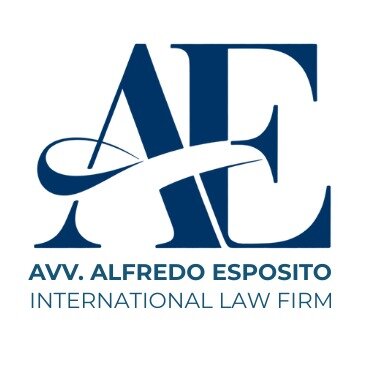Best Commercial Real Estate Lawyers in Italy
Share your needs with us, get contacted by law firms.
Free. Takes 2 min.
Free Guide to Hiring a Real Estate Lawyer
Or refine your search by selecting a city:
List of the best lawyers in Italy
About Commercial Real Estate Law in Italy
Commercial Real Estate in Italy is a dynamic sector, offering a range of opportunities for investors and businesses alike. Italy's rich cultural heritage and vibrant economy make it an attractive destination for commercial real estate investments. The legal framework governing this sector is complex and multifaceted, involving various regulations regarding property transactions, zoning laws, environmental regulations, and taxation. Understanding these legal nuances is essential for successful real estate investment and development in Italy.
Why You May Need a Lawyer
Navigating the commercial real estate landscape in Italy often requires expert legal guidance. Here are some common situations where legal assistance might be necessary:
- Purchasing or selling commercial properties, where due diligence and contract negotiations are crucial.
- Lease agreements for commercial premises, ensuring terms are clear and enforceable.
- Compliance with zoning and building regulations, which can vary significantly between regions.
- Resolving disputes related to property ownership or leasing issues.
- Handling tax-related matters, including VAT implications and other fiscal responsibilities.
Local Laws Overview
The Italian legal system influences many aspects of commercial real estate transactions. Here are some key areas:
- Property Transaction Regulations: Contracts must be in writing and typically involve a preliminary contract followed by a final purchase deed.
- Environmental Regulations: Compliance with environmental standards is mandatory, affecting development and renovation projects.
- Zoning Laws: Properties are subject to specific zoning laws which determine the types of permissible commercial activities.
- Taxation: Various taxes apply, including registration tax, cadastral tax, and possibly VAT, depending on the nature of the transaction.
- Lease Agreements: These are governed by both the Civil Code and specific laws that regulate commercial leases.
Frequently Asked Questions
1. What types of commercial real estate are prevalent in Italy?
Common types include office spaces, retail properties, industrial buildings, hotels, and agricultural land.
2. How is property ownership structured in Italy?
Property can be owned by individuals or corporate entities and is registered at the Land Registry (Catasto) for record-keeping and tax assessment.
3. What are the typical steps involved in purchasing commercial property?
The process generally involves a preliminary contract, due diligence, securing financing, and the signing of the final deed before a notary.
4. Are there any restrictions for foreign investors in Italian real estate?
Foreigners can purchase property in Italy without restriction, but it is advisable to understand tax implications and possible residency requirements.
5. How long do commercial lease agreements typically last?
Commercial leases in Italy commonly run for six years, with the possibility for renewal, but agreements can vary.
6. Is it necessary to hire an architect or engineer for property development?
Yes, hiring licensed professionals is required for most development or renovation projects to ensure compliance with building and zoning regulations.
7. What is the role of a notary in real estate transactions?
A notary public is essential for verifying and formalizing real estate transactions, ensuring all legal requirements are met.
8. Can rental agreements be terminated before the expiration date?
Yes, but conditions and potential penalties are usually predefined in the lease agreement and vary based on the contract terms.
9. How are property taxes assessed in Italy?
Property taxes are based on the cadastral value of the property, which may differ from the market value, and include the IMU and TASI taxes.
10. Are there special considerations for historic buildings?
Yes, renovations and uses of historic buildings are subject to stringent regulations designed to preserve cultural heritage.
Additional Resources
Consider consulting the following resources for more information:
- Italian Agenzia del Territorio - For property records and valuations.
- Local Chambers of Commerce - For guidance on business operations and real estate opportunities.
- The Italian Revenue Agency (Agenzia delle Entrate) - For taxation and legal compliance information.
Next Steps
If you require legal assistance in the field of commercial real estate in Italy, consider the following steps:
- Consult with a lawyer specializing in Italian real estate law for personalized legal advice and transaction support.
- Engage with a local real estate agent who can provide insights into market conditions and offer property listings.
- Work with professional consultants such as tax advisors and architects when dealing with specific issues or development projects.
Conduct thorough research and ensure all legal and financial aspects are clear and agreed upon before proceeding with any real estate transaction.
Lawzana helps you find the best lawyers and law firms in Italy through a curated and pre-screened list of qualified legal professionals. Our platform offers rankings and detailed profiles of attorneys and law firms, allowing you to compare based on practice areas, including Commercial Real Estate, experience, and client feedback.
Each profile includes a description of the firm's areas of practice, client reviews, team members and partners, year of establishment, spoken languages, office locations, contact information, social media presence, and any published articles or resources. Most firms on our platform speak English and are experienced in both local and international legal matters.
Get a quote from top-rated law firms in Italy — quickly, securely, and without unnecessary hassle.
Disclaimer:
The information provided on this page is for general informational purposes only and does not constitute legal advice. While we strive to ensure the accuracy and relevance of the content, legal information may change over time, and interpretations of the law can vary. You should always consult with a qualified legal professional for advice specific to your situation.
We disclaim all liability for actions taken or not taken based on the content of this page. If you believe any information is incorrect or outdated, please contact us, and we will review and update it where appropriate.
Browse commercial real estate law firms by city in Italy
Refine your search by selecting a city.

















